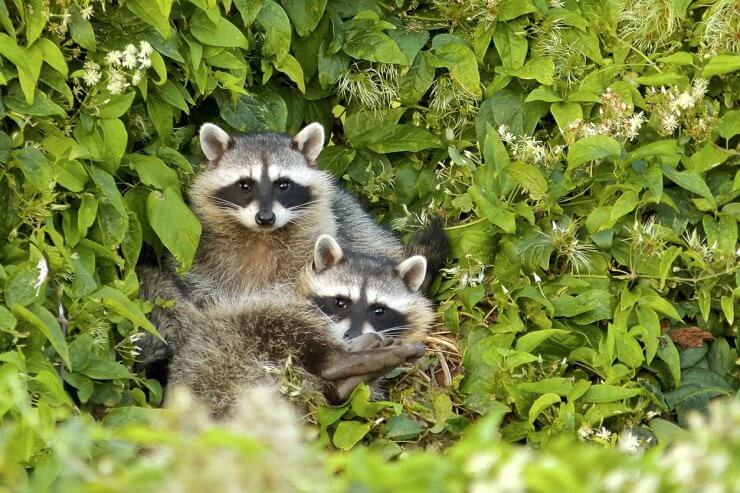
Composting is the gift that keeps on giving. I love turning food scraps, cardboard, grass clippings, and other green and brown materials into a usable and nutritious soil amendment. It saves money and the planet. Not to mention trash day is a lot lighter! With so many ways to compost, finding a method that works for your lifestyle is pretty easy. You may run into issues keeping critters out of your compost pile. Whether it’s your furbabies or some rogue raccoon posse, it’s important to learn how to keep animals out of compost bins and piles.
Discover 7 top tips for growing, harvesting, and enjoying tomatoes from your home garden—when you access the FREE guide The Best Way to Grow Tomatoes, right now!
Why do I need to worry about animals in my compost pile?
If you plan to use your compost in your vegetable garden, or in any situation where you’ll be growing consumable plants, you’ll want to keep animals away. So what’s wrong with animals nibbling on your food scraps? Well when they’re eating, they’re also pooping and peeing. Bacteria from animal feces, urine, and even saliva can contaminate your compost making it unsafe to use on anything you plan to eat. Animals can be hosts to different parasites and bug infestations that can easily infiltrate your compost pile if left unprotected.
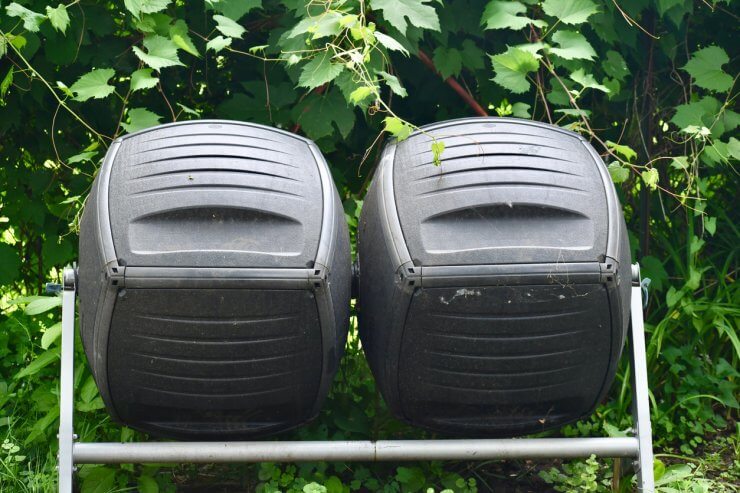
Consider a closed compost system
A closed compost system is an easy way to figure out how to keep animals out of compost bins. Closed compost systems are typically contained in something with a lid, sides, and sometimes even a bottom. Some styles are raised above the ground in tumblers that make them easier for turning. A fully closed system will have a tight-fitting lid. These types of compost setups are great if you have a smaller yard and need to put your compost bin close to the house.
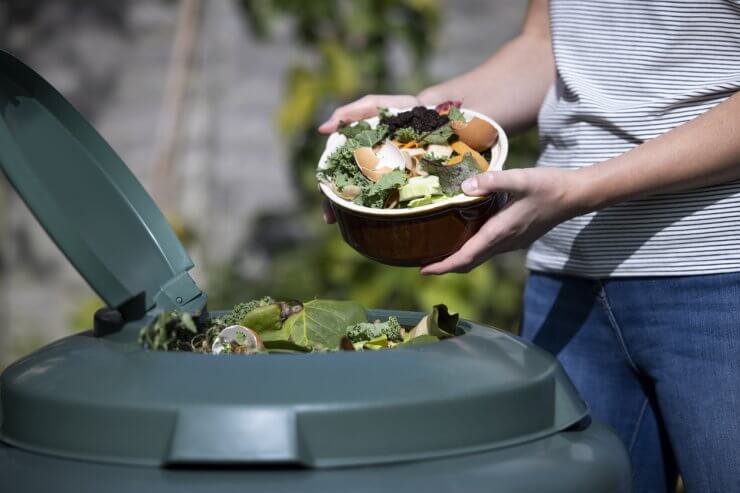
Keep your ratio even
An easy method for learning how to keep animals out of compost is to avoid attracting them. Animals are drawn to the scent of rotting food. Keep your compost ratios at 50% green material (veggie scraps, grass clippings, coffee grounds) and 50% brown material (straw, sawdust, cardboard). A 50/50 mix will help your compost maintain a warm enough temperature so that food scraps break down quickly. A general rule of thumb is if your compost isn’t heating up enough, you may need to add green material (nitrogen). If it’s starting to stink, you may need more brown material (carbon).
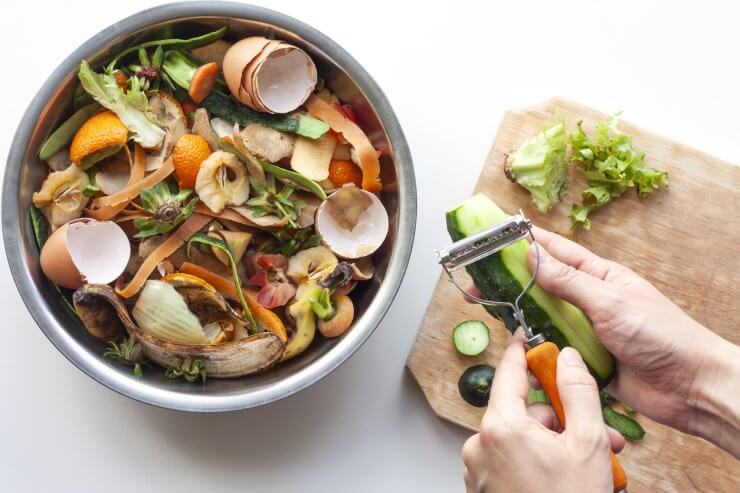
Keep meat out of the compost
Life is a veritable smorgasbord when you’re a neighborhood critter looking for his next meal. To keep your Templetons and Remys from going to town on your compost pile, leave the meat scraps out of it. There are some types of closed compost systems, like the bokashi method, that allow for small scraps of meat to be included. But in general, keep the meat out of your compost.
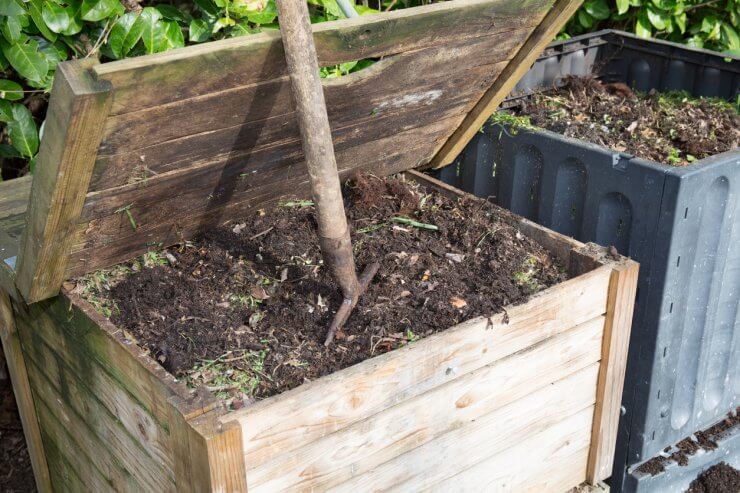
Pest-proof your compost pile or bin
Even if you choose an open-style pile or bin, there are barrier methods you can use when learning how to keep animals out of compost. Consider adding walls around your compost pile using scrap wood or metal mesh. Even chicken wire will help prevent invasion by larger animals. If you have a lid that’s a bit loose, consider putting a heavy object like a couple of bricks on top to keep the lid secure.
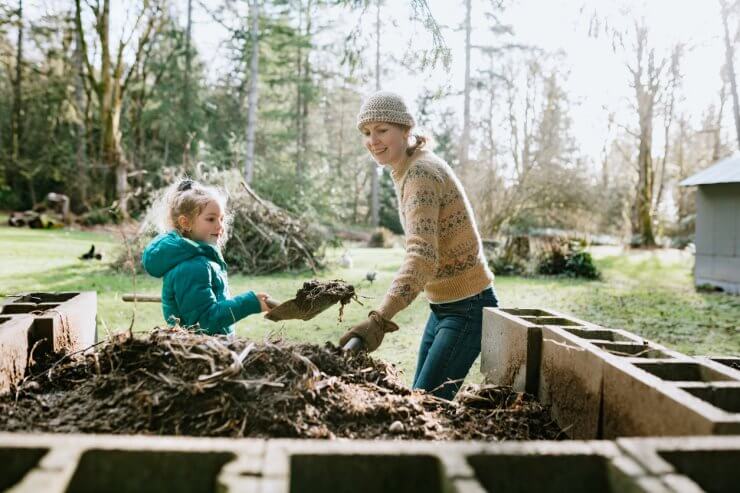
Build your compost pile away from wildlife “highways”
A backyard can be a welcoming place for wildlife. Especially if there are inviting elements like bird feeders or birdbaths nearby. When situating your compost pile, avoid areas that already have wildlife traffic. Keep compost away from bird feeders, fencing, and pet water bowls. Avoid placing your compost near any natural food sources (like berrying trees and bushes). Being strategic about your compost’s location will deter animals from thinking your compost pile is there for their enjoyment.
Have you figured out how to keep animals out of compost bins? What is your secret? Share your thoughts in the comments!
Discover 7 top tips for growing, harvesting, and enjoying tomatoes from your home garden—when you access the FREE guide The Best Way to Grow Tomatoes, right now!





I use plastic [large] black garbage cans w lids that snap down. Also, only protein is eggshells. I have 2 cans in the backyard. I use one until its about 2/3 full – otherwise it becomes too heavy to move when ready to use the compost – then switch to the other.
Just now learning about the brown to green ratio… so that’s why it took so long! 🙂
I currently have a rats nest in mine!! We will be removing all the compost and moving them further away from the chicken shed. We will also line the slatted wood sides, and bottom and top with hardware mesh to keep them out. Sadly I will have to throw away the beautiful compost. We now have a barrel type compost for kitchen waste and will only use the old compost bins for garden waste. Any other suggestions would be appreciated
RE the bees: I had the same problem with my very high raised bed (I have a bad back so it’s about 3+ feet high). Yellow jackets poured out of the corner last year as I was adding coffee grounds (guess they don’t drink coffee!) so I called my exterminator about what I could do that would not involve poison. He told me to pour boiling water down the corner AT NIGHT when they don’t fly and when they would all be home. I had to do that twice and then they were gone. Thankfully I didn’t kill any honeybees but was glad to stop the stinging feisty yellow jackets so cheaply, easily and fast.
I’ve had 2 kinds of compost “bins”. One a closed type with lid and the other an ppe area with 3 sides made from cinderblock. Both worked well, but closed bin ended up having a bee nest inside and I was stung multiple times. How do I rectify the closed bin dilemma?